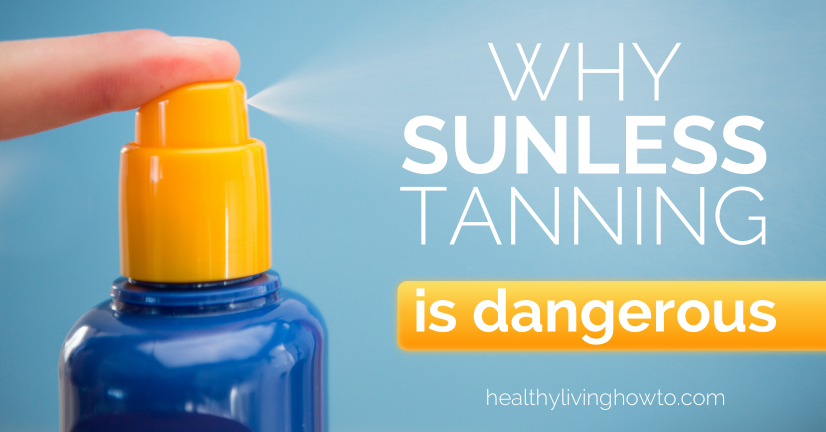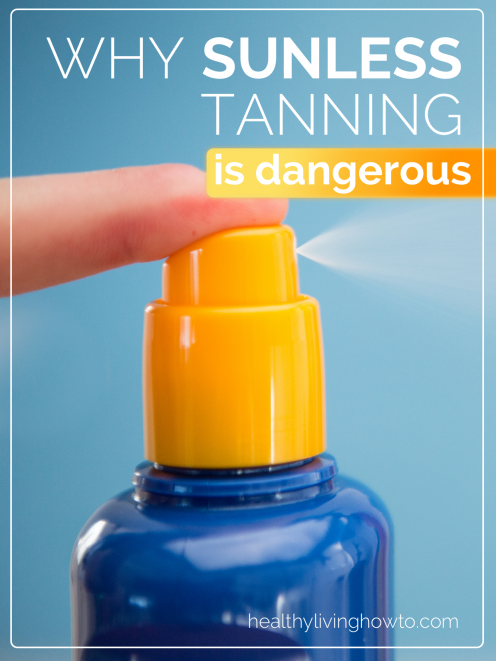Spray tans are generally considered to be benign cosmetic treatments — but are they REALLY? Sunless tanners contain a lengthy list of chemical agents — up to 45 in the case of spray tanners. Many of these agents have never been studied for their long-term effects on human health, because the FDA does not systematically review the safety of personal care products. Since testing is voluntary and controlled by the manufacturers, many ingredients in cosmetic products are not safety testedat all.
One of the main ingredients in spray tanning solutions is dihydroxyacetone, a color additive that darkens your skin by reacting with amino acids in your skin's surface layer. Dihydroxyacetone is often abbreviated DHA (which should not be confused with docosahexaenoic acid, the healthy omega-3 fat often given the same abbreviation). Sunless tanning products often contain between 1 and 15 percent DHA; the higher the DHA level, the darker the tan produced.
Manufacturers of sunless tanning products claim DHA is a simple carbohydrate sugar solution, but some toxicologists disagree. Part of the problem is that the U.S. government's regulations for DHA allow contaminants such as lead, arsenic and mercury.
Lead and mercury in particular are known to affect brain development, and no one knows how large the effect may be on your baby, should you be pregnant while spray tanning.
A report by the National Toxicology Program1 suggests the risks of DHA remain unclear, pointing to some evidence that DHA may be a mutagen that could induce breaks in DNA strands, which could contribute to accelerated aging and even skin cancer. Another issue is absorption through your skin. You shouldn't put anything on your skin you wouldn't feel safe eating.
Absorbing chemicals transdermally is actually MORE dangerous than ingesting them orally, because they can be absorbed directly into your fat tissue, lymphatic system and bloodstream without any digestive degradation. Anything you consume orally must go to the highly evolved detoxification systems within your liver first before being released into your blood. Digestive acid also works, at least in part, to neutralize some chemicals — but this does not occur when you absorb them transdermally, or inhale them, for that matter.
When you have DHA-containing products sprayed on you in a booth, little droplets become suspended in the air all around you, increasing your risk for exposure through your eyes, nose and mouth. Wearing protective gear over your eyes, nose and mouth is extremely important — but it does not remove all the risk.
In fact, earlier this year a panel of medical experts reviewed 10 scientific studies on DHA and concluded the use of DHA-containing spray tans may cause genetic alterations and DNA damage that could lead to cancer and chronic lung diseases when inhaled.2 Sunless tanning sprays have even been found to inhibit your skin's ability to produce vitamin D, as the dark layer on your skin produced by the DHA results in the prevention of UVB absorption, thereby inhibiting vitamin D production.3
This article was brought to you by Dr. Mercola. Founder of the world's #1 natural health site.


